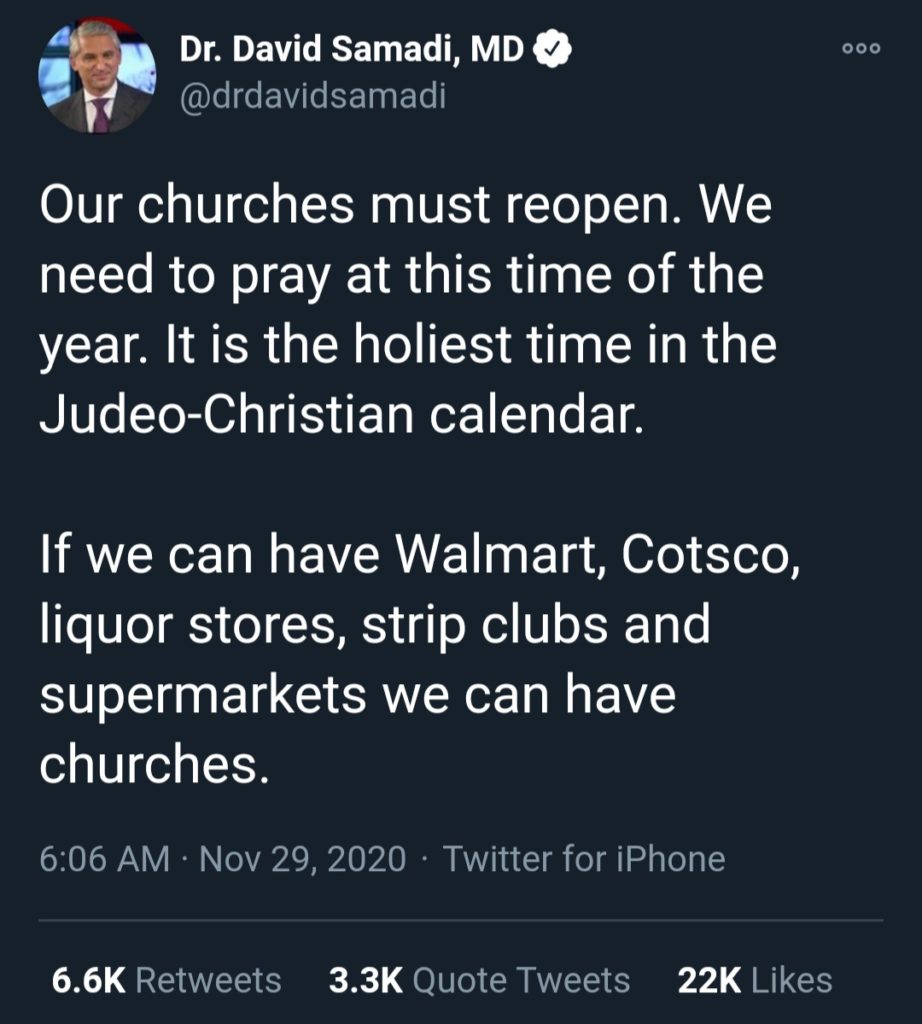Christmastime is finally here, and after a long year with nothing to look forward to, the festivity in the air is palpable. But for those of us that don’t celebrate one of the world’s most popular holidays, what are these days like? From often offensive discourse about exclusionary language to rising rates of anti-Semitism in the United States, being Jewish during the holiday season can feel emotionally draining and sometimes, flat out dangerous.

Recently, I’ve seen a lot of conversation on Twitter about the need to open churches for Christmas worship. Using words like “Judeo-Christian,” many people are making the argument that now is the holiest time for both religions, and to not open up places of worship would be religious suppression. Though there is a myriad of nuances and problems with that claim, the general issue here is that blatant misinformation about Judaism is spread under the guise of seeking justice.
For the record, not only do Judaism and Christianity not share the same calendar, but it is not the “holiest time of year” for either religion. In Judaism, the holiest time of year occurs during Yom Kippur in September, a holiday that, this year, many synagogues successfully held services for over Zoom. My point is that many Christian supremacists bring Jews into situations entirely unrelated to us for the sake of appearing tolerant of one other religion, and can either directly or indirectly end up spreading misinformation as a result.
The spread of misinformation about Judaism doesn’t just stop at recent coronavirus conversations. Discussion about the “War on Christmas” has perpetuated every corner of the internet for years. The main argument centers around the use of non-Christain inclusionary language and accommodation to the traditions of those who do not identify with Christianity encroaching on the sanctity of the holiday.
Not only does this supposed “war” simply not exist, but to claim that it does is inherently harmful to other cultures. December exists as a month to everybody, not just those that celebrate Christmas. Just because other holidays are recognized and respected does not mean that Christmas is any less special than it is. Even still, no holidays can truly compare to the magnitude of power that Christmas has in Western culture.
I’m so tired of Chanukah being referred to as “The Jewish Christmas.” The only correlation between Chanukah and Christmas are the dates at which the holidays fall, and the deep and beautiful history of Chanukah and Judaism, in general, is entirely disregarded by the comparisons. There are so many culturally Christian ideals irreversibly ingrained into our society, and to frame a Jewish tradition as the “Jewish version of this Christian practice,” is both historically inaccurate and flat-out rude.
Chanukah is not the “Christian” anything. It’s exhausting having my culture being simplified down to erroneous descriptions just so it’s easier for other people to understand. Every year, in some way or another, I watch a retelling of the story of Christmas. And yet every year, I see people misrepresent very basic aspects of Chanukah and Judaism simply because Jewish education isn’t as mainstream as Christian education is.
So this year, as both Chanukah and Christmas grow closer, consider your Jewish friends. Ask questions about who we are and the traditions we practice. Learn how to recognize anti-Semitism both online and in-person. And for all of our sake, quit calling it the “Jewish Christmas.”
